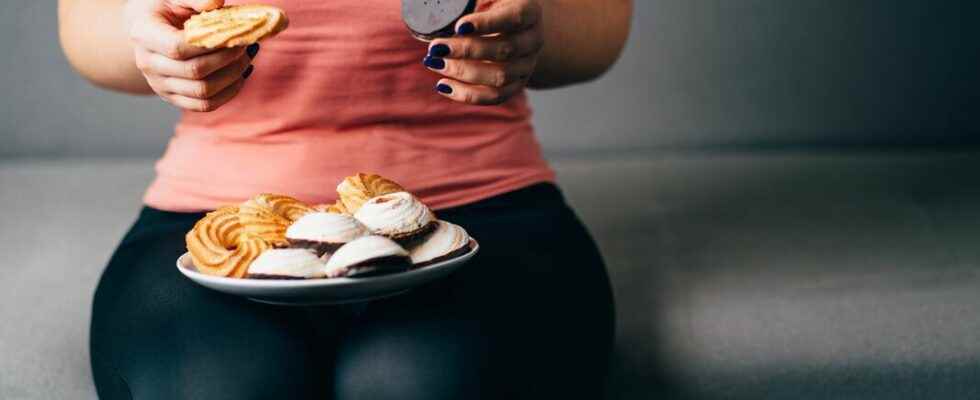Maylis calls herself a “sugar addict”, unable to resist sweet candies and cookies. Sophie Janvier will help him regain his freedom of action.
Maylis is a manager in a security company. Every day, she faces emergency situations and mobilizes self-control, discernment and composure. But when she gets home, or when she is in front of her screen, she consumes many candies, cookies and other sweet treats while losing control, feeling guilty and often having a stomach ache from excess.
The first time I meet her, I am struck by this mixture of determination and vulnerability that her voice betrays, soft and firm at the same time. Maylis tells me what she calls her “ghosts”, those sweet compulsions that she has in secret, but also, more and more, in broad daylight. My job is to first figure out what’s behind those sugar cravings. What flaw, what need for comfort, what anxiety?
I discover that Maylis has a complicated relationship with Her silhouette : she thinks she is fat and constantly thinks about “all that disgusting grease”. She wonders how her husband can still find her to his liking. She loves fashion, but hates shopping because she thinks nothing suits her.
Maylis is very invested in her work: she always wants to be up to the task, always performing well. She goes swimming every week, while telling me “Once a week is not enough”.
Mother of two teenagers, she confides to me that she has trouble with her eldest daughter, rebellious, and hates herself for giving her the example of a mother. “who can’t resist a bar of chocolate”. Maylis takes the brunt of all the injunctions made to women: to have a perfect body, to succeed in her career, to show her children the right path, to play sports, to be organized, sociable, creative…
It’s too much. It’s obviously too much. How not to need a valve, an escape?
Free yourself from constraints
I invite Maylis to reassess her standards, to define what is a priority for her, what makes the most sense. “Doing me good, feeling free”, she told me. Session after session, I try to make him understand that the solution is not in more constraints, but in less. And first in terms of food. Maylis asks herself almost at every meal whether what she is eating is not too much of this or not enough of that. She blames herself as soon as she allows herself cheese or chocolate.
Work on your impulses to deprogram the brain
Little by little I will help her trust your body more than in his head. To let go of judgment and focus on what is good for your body. We will also work on food urges. To postpone the passage to the act, to know how to wait until the wave of the desire to eat is crushed or, at least, calms down. It’s the best way to deprogram the brain.
Sweet urges are indeed like highways: the brain has registered that this is the shortest route to comfort. Maylis will gradually clear small alternative country roads and free herself from her addiction to sugar. The ghosts will gradually fade away, and the sweet pleasures will resume their rightful place.
Thanks to our expert Sophie January, nutritionist dietician, author of “The Gentle Method for Better Eating”, ed. The Duke.
